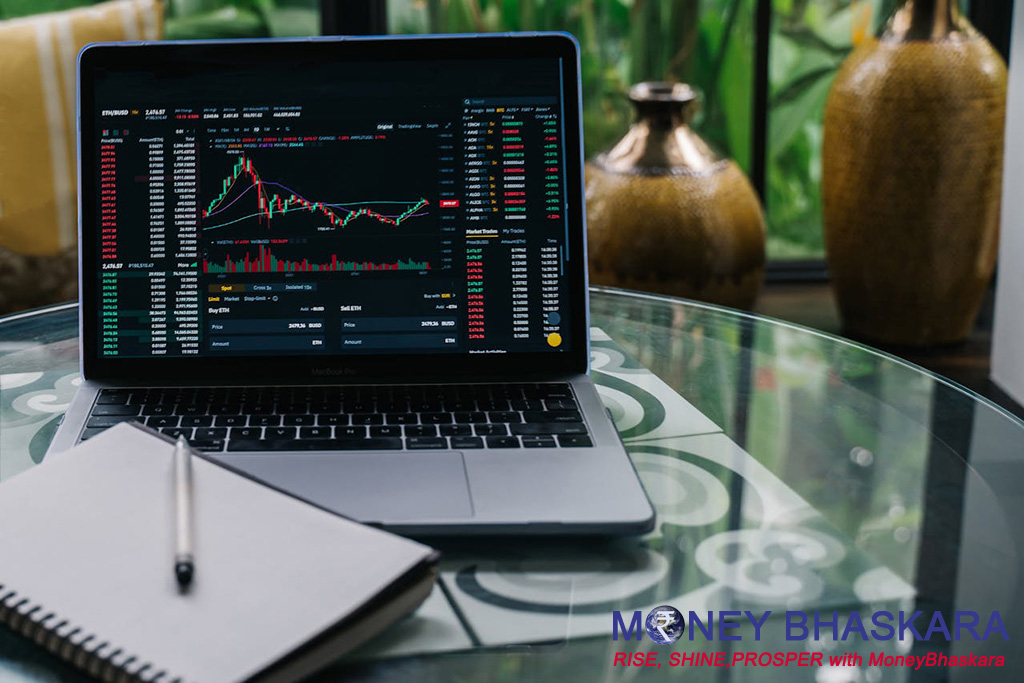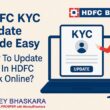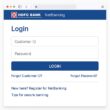Ever heard someone say, “I made a killing in the stock market”? Chances are, they had a trading account doing the heavy lifting behind the scenes. Whether you’re just dipping your toes into the vast ocean of investing or you’ve already made a few splashes, understanding what a trading account is—and what it isn’t—can make a world of difference.
But hold your horses—this isn’t just another dry financial explainer. We’re going full throttle into what a trading account really means, how it actually works (no fluff!), its advantages, and much more. Get ready to break it all down into bite-sized, jargon-free chunks—with a twist of wit and a generous dose of clarity.

What is a Trading Account?
Let’s strip it down to basics.
A trading account is like your personal passport to the financial markets. It’s the platform or interface through which you buy and sell stocks, bonds, ETFs, commodities, and other securities on the stock exchange.
Think of it as your virtual broker booth. Just like you’d need a bank account to manage your money, you need a trading account to manage and execute trades in the market.
Breaking Down the Definition
- Meaning: A trading account is an online interface provided by a stockbroker that allows you to place buy/sell orders in the stock market.
- Purpose: Enables real-time trading of securities.
- Connection: Works in sync with a Demat account (for holding shares) and a bank account (for funds transfer).
How Does a Trading Account Work?
This is where the magic unfolds—or should we say, where the action really begins.
Step-by-Step: How It Works
- Open the Account: Choose a brokerage, fill out a few forms, submit your KYC (Know Your Customer) documents, and voila! You’re ready to roll.
- Add Funds: Link your bank account and deposit money into your trading account.
- Place Orders: Want to buy Tata Motors shares? Or maybe invest in gold ETFs? Use your trading account to place an order.
- Order Execution: The broker routes your order to the exchange—if matched, your order gets executed instantly.
- Settlement: The shares are delivered to your Demat account, and the money is debited from your bank account. Done and dusted!
Trading Account Vs. Demat Account
| Feature | Trading Account | Demat Account |
| Purpose | To buy/sell securities | To hold securities |
| Type | Transactional | Depository |
| Usage | Used during trade execution | Used after the trade is complete |
So, no, they’re not interchangeable—they’re inseparable, though.
Why Open a Trading Account?
Here comes the juicy bit. Why should you even bother opening a trading account in the first place? Well, here’s why:
Advantages of a Trading Account
- Ease of Trading: One-click trades? Oh yes! Most platforms offer intuitive dashboards, real-time charts, and AI-assisted tips.
- Speed: No more shouting on the trading floor—it’s all electronic, fast, and accurate.
- Access to Multiple Markets: Trade stocks, derivatives, commodities, currencies—you name it!
- Track Performance: Monitor your portfolio, analyze trends, and get instant alerts.
- Cost-Effective: With zero-brokerage plans becoming common, even small investors can get in on the action.
🎯 Pro Tip: Choose a trading account with low brokerage fees, high uptime, and excellent customer support. Don’t just go with the flashiest app!
Types of Trading Accounts in India
Not all trading accounts are created equal. Depending on your trading style, risk appetite, and goals, you might want a specific type of account.
1. Equity Trading Account
- Deals in shares and equity derivatives.
- Most common type of trading account.
2. Commodity Trading Account
- Trade in commodities like gold, oil, spices, or metals.
- Regulated by the MCX and NCDEX.
3. Currency Trading Account
- Allows you to speculate on currency pairs.
- Popular among forex traders and global investors.
4. Futures & Options Trading Account
- Fancy yourself a bit of a risk-taker? Futures and options offer leveraged positions.
⚠️ Heads Up: These accounts might require separate permissions or margin setups.
Opening a Trading Account – The 7-Step Sprint
Setting up a trading account used to be a tedious affair. Thankfully, it’s a breeze now!
Here’s how to open one:
- Choose a SEBI-registered broker (like Zerodha, Upstox, Angel One, ICICI Direct, etc.)
- Visit their website or app
- Fill out the application form
- Upload KYC documents (PAN, Aadhaar, bank details, income proof for F&O)
- Do an e-sign or video KYC
- Link your bank and Demat account
- Start trading after verification!
Easy as pie, right?
Must-Have Features in a Good Trading Account
Not all platforms offer the same bells and whistles. Here’s what to look for before picking your trading partner:
Top Features Checklist
- ☑️ Real-time data and live quotes
- ☑️ Intuitive user interface
- ☑️ Mobile trading app
- ☑️ Technical & fundamental analysis tools
- ☑️ Secure login & transaction encryption
- ☑️ Low brokerage charges
- ☑️ 24/7 customer support
If your chosen trading account doesn’t tick at least 5 of these boxes, you might wanna reconsider.
Trading Account Charges – What’s the Damage?
Let’s talk moolah.
Though many brokers advertise zero brokerage, there are still other charges that sneak in:
Common Charges:
- Account Opening Fee – One-time (₹0–₹500)
- Annual Maintenance Charges (AMC) – ₹200–₹1000/year
- Brokerage Fee – Flat fee or percentage per trade
- Transaction Charges – Exchange-imposed costs
- STT (Securities Transaction Tax) – Charged by the govt.
So before you dive in, do some math. A penny saved is a penny earned!
Trading Account Security – Is It Safe?
With cyber threats popping up like mushrooms in monsoon, safety is non-negotiable.
Top Security Practices:
- Use strong passwords & 2FA (two-factor authentication)
- Never share OTPs or login details
- Trade only on trusted, verified platforms
- Keep your software and apps up to date
🤖 Avoid phishing emails and fake trading apps. If it sounds too good to be true—it probably is!
Mistakes to Avoid While Using a Trading Account
Nobody’s perfect, but a little caution can save you a whole lot of regret.
Common Rookie Errors:
- 💣 Overtrading: Trigger-happy fingers can wipe out your funds.
- 😵 Ignoring stop-loss: Always have a safety net.
- 🗞️ Blindly following tips: Do your own research (DYOR).
- 🧾 Skipping tax planning: Capital gains tax is real, folks!
Who Should Have a Trading Account?
Short answer? Everyone looking to make smart investments or dabble in the market.
Ideal for:
- Young professionals growing their wealth
- Retirees looking for better-than-FD returns
- Side hustlers eyeing passive income
- Finance geeks with a passion for charts and candlesticks
Whether you’re an amateur or a market maven, a trading account opens up a universe of opportunities.
Best Brokers in India for Trading Accounts (2025 Edition)
Here are some top-rated names making waves in the Indian market:
Top 5 Trading Account Providers:
| Broker | Highlights |
| Zerodha | Low-cost, feature-rich, great UI |
| Upstox | Fast onboarding, modern interface |
| Groww | Best for mutual funds + trading |
| Angel One | Strong research tools |
| ICICI Direct | Reliable and bank-integrated |
Pick one that aligns with your goals and experience level.
FAQs
1. Can I open a trading account without a Demat account?
Technically, yes—but practically, no. You need a Demat account to store the securities you purchase via your trading account.
2. Is there a minimum balance requirement?
Most modern brokers don’t require a minimum balance. But some may ask for margins if you’re trading in derivatives.
3. Can I hold multiple trading accounts?
Absolutely! There’s no rule stopping you from having more than one trading account across different brokers.
4. Do I pay tax on trading gains?
Yes, gains are subject to Short-Term Capital Gains (STCG) or Long-Term Capital Gains (LTCG) tax. Better talk to a CA for detailed planning!
5. Are trading accounts free?
Many are free to open, but might include AMC or small transaction charges.
Conclusion
So, what’s the takeaway?
A trading account isn’t just a fancy tool—it’s your launchpad to the fast-paced world of investing and wealth creation. Whether you’re planning to play it safe or take bold bets, your trading account is the first and most essential step.
In today’s digital age, setting one up is as easy as swiping right. But managing it wisely? That’s where the real game begins. So choose smartly, trade responsibly, and remember—every financial empire starts with a single well-placed trade.
Ready to start your trading journey?




